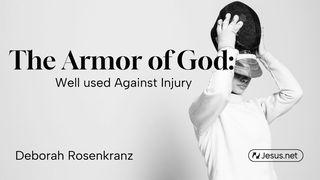Justice ParablesSample

The Unforgiving Servant
Pastor Clarence E. Wright, M. Div.
Love Zion Baptist Church
The cycle of debt is hard for many to break. Student loans, credit card debt, medical debt, and high-interest loans are a daily obstacle for many. While it is tempting to see this as unique to our current capitalistic society, the problem of debt is not new. I often dream of life without credit card debt, without a car note, what my life will look like when my student loans and mortgage are paid off. As a pastor, I dream about how much more ministry we could do if the church did not have to pay a mortgage every month. The cycle of debt is vicious, and recurring interest can feel like a never-ending cycle, so the thought of having debts forgiven is a dream that is easy to visualize.
The story of the unforgiving servant is Jesus’s answer to Peter’s question about forgiveness. Although the parable is concerned with financial debt, mercy is a major theme. The verses that precede the story deal with how to address offense as a church, but Peter asks the question: How do I handle offense? The act of the king forgiving a financial debt represents Peter (or any disciple) forgiving a personal offense. The passage ends with the unmerciful servant tormented in jail and contrasts him with the king who modeled forgiveness and mercy. Although the king was owed a large debt, he chose to settle the amount owed to him through an act of mercy. Indeed, the subject of the punishment was first the beneficiary of mercy, but the one so desperate for mercy was not willing to show the same to one of equal social status.
Consider the contrast between these two servants. The unmerciful servant was first in a position of need and later in a position of power. He needed mercy from the king but withheld mercy from one who asked the same of him. God shows over and over in Scripture that he cares about the oppressed, the marginalized, and the “least of these.” While God’s mercies are unfailing, God does not tolerate oppression of the weak or the poor.
This passage offers an opportunity for self-reflection. Every one of us is both a debtor and a debt holder. The nature of life together in this world means that we have all been both the victim and the one who has caused harm. Being oppressed does not make one incapable of being an oppressor. In our demand for justice toward those who have caused us harm, we must remember that we too are debtors in need of mercy and be mindful of the words of Jesus in the model prayer, “Forgive us our debts, as we also have forgiven our debtors” (Matthew 6:12 KJV).
Scripture
About this Plan

Being part of the Kingdom of God should shape our personal character—and our public roles. But how? “Jesus’s Parables on Justice” features the reflections of 30 Philadelphia pastors on 11 parables that illuminate the Kingdom. The pastors help us ask good questions about these surprising stories to guide us in putting Jesus’s words into practice. Read Jesus’s words. Consider the questions. See what God says to you.
More
We would like to thank American Bible Society for providing this plan. For more information, please visit: http://americanbible.org/
Related Plans

Faith vs Fear

Lent: The Journey of Letting Go

The Uniqueness of Jesus

Romans: God's Power to Save | Video Devotional

In Crisis but Not Consumed

Men of Encouragement

Connect With God Through Conversation | 7-Day Devotional

Wherever You Are: Grace for Moms

Noah: A Covenant With Humanity
